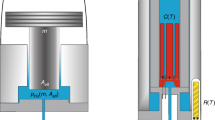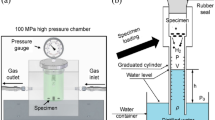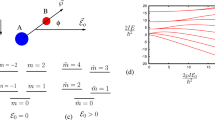Abstract
IN a recent communication1, the sensitivity, dt/dx, of a thermal-conductivity cell to small amounts of organic vapours was derived from :  where t
1 and t
0 are the temperatures of the hot wire and body of the cell respectively, a is constant, and K
1 is the thermal conductivity of the carrier gas. The sensitivity was then shown to be :
where t
1 and t
0 are the temperatures of the hot wire and body of the cell respectively, a is constant, and K
1 is the thermal conductivity of the carrier gas. The sensitivity was then shown to be :  where K
2 is the thermal conductivity of the organic vapour and x is its concentration in the carrier gas. From equation 2, carrier gases of low thermal conductivity would be expected to produce the highest sensitivities. However, in practice a is usually varied, and sensitivities should be compared at equal values of t
1. Carrier gases of high thermal conductivity would then give the highest sensitivities.
where K
2 is the thermal conductivity of the organic vapour and x is its concentration in the carrier gas. From equation 2, carrier gases of low thermal conductivity would be expected to produce the highest sensitivities. However, in practice a is usually varied, and sensitivities should be compared at equal values of t
1. Carrier gases of high thermal conductivity would then give the highest sensitivities.
This is a preview of subscription content, access via your institution
Access options
Subscribe to this journal
Receive 51 print issues and online access
$199.00 per year
only $3.90 per issue
Buy this article
- Purchase on Springer Link
- Instant access to full article PDF
Prices may be subject to local taxes which are calculated during checkout
Similar content being viewed by others

References
Ray, N. H., Nature, 182, 1663 (1958).
Author information
Authors and Affiliations
Rights and permissions
About this article
Cite this article
SCHMAUCH, L., DINERSTEIN, R. Effect of the Carrier Gas on the Sensitivity of a Thermal-conductivity Detector in Gas Chromatography. Nature 183, 673–674 (1959). https://doi.org/10.1038/183673b0
Issue Date:
DOI: https://doi.org/10.1038/183673b0
This article is cited by
Comments
By submitting a comment you agree to abide by our Terms and Community Guidelines. If you find something abusive or that does not comply with our terms or guidelines please flag it as inappropriate.


